Drill Design Comparisons in No-till
Both fields were planted the same day, with the same seed lot, at the same seeding rate. Both fields had had the same cropping history for five years, and the prior year’s wheat crop and stubble were very similar.
Mediocre No-till Seeding
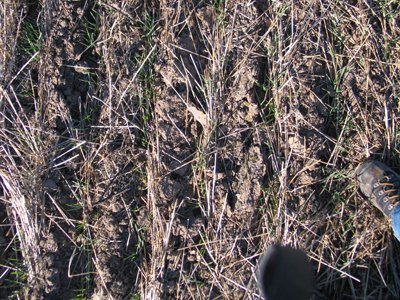
Wheat planted with a so-called no-till drill (actually just the old packer-wheel design with heavier down-pressure springs, but several companies sell these as ‘no-till’ drills). Note the substantial soil disturbance and stubble being buried. Stand was 870,000 plants/a.
This is just one example of dozens that Matt Hagny has observed over the years — the wannabe no-till drills only obtain about half or 2/3 the stands that they should in long-term no-till. These press drills need loose soil to function (they perform better if they have aggressive coulters out in front, but then you’re planting all the weed seeds and burying all your mulch; you’d be money ahead to buy a real no-till drill).
Superb No-till Seeding
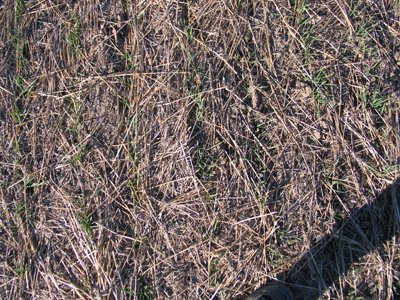
This was taken just a couple hundred feet from the photos to the left. However, this field was planted with a JD 1560, outfitted with 90-series boots, SDX firming wheels, and spoked closing wheels. Extremely low soil disturbance, and all the stubble is retained. Stand was 1,240,000 plants/a.
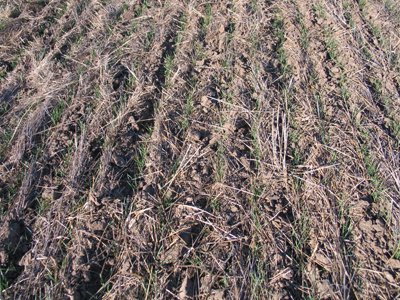
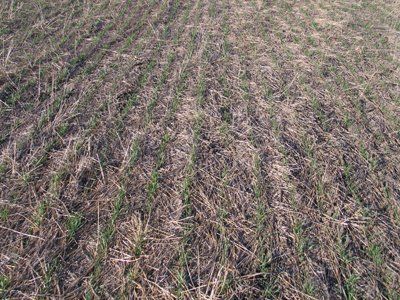
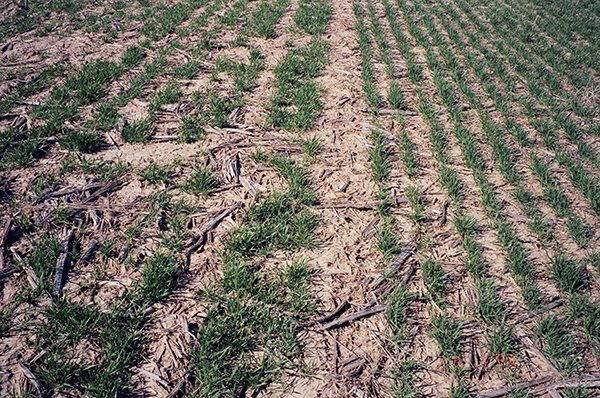
Concord shank – L; JD 1850 – R (same seed lot, same rate, same day; the farmer was well-versed in setting shank openers and had been running his Concord for several years, whereas the 1850 was new and unfamiliar to him). North-central KS into sunflower stubble. Yield was ~ 10% less with the Concord.
